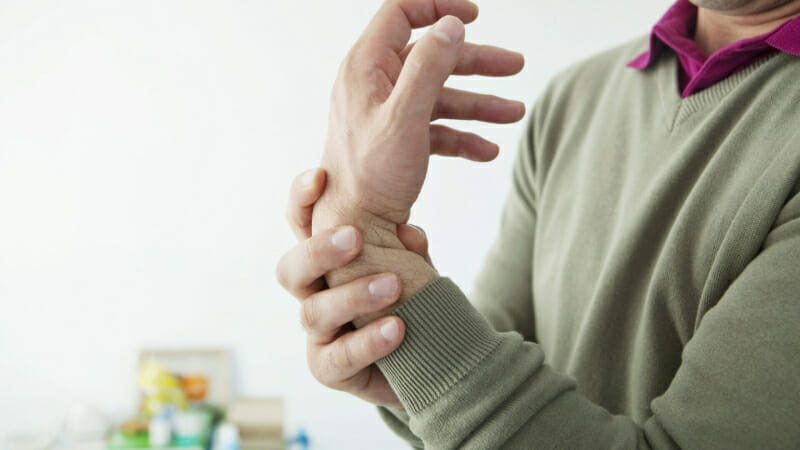What is Dupuytren’s Contracture?
The exact cause of Dupuytren’s is unknown, it is believed to be hereditary, although could be caused by smoking, drinking excessive alcohol or having a condition such as epilepsy or diabetes.
What are the symptoms of Dupuytren’s Contracture?
Dupuytren’s mainly affects the ring and little fingers and you can have it in both hands at the same time.
It tends to start with a lump, dimples or ridges on your palm and eventually may cause your finger to get stuck in a bent position.
What is the treatment?
- Needle fasciotomy – several insertions are made along the palm and the finger with a needle to loosen and straighten the affected finger.
